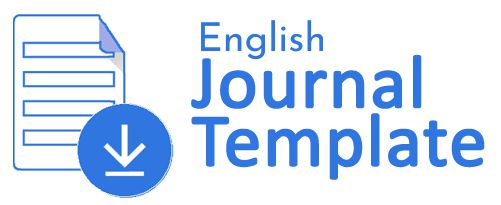The Development of Active Learning Based Stage Play Learning Media of Indonesia Language Theme 7 for Fourth Grade Primary School
DOI:
https://doi.org/10.12928/jimp.v1i1.4141Keywords:
Learning Media, Stage play Learning Media, Active Learning, Indonesian Language for Primary SchoolAbstract
The success of learning Bahasa needs to be supported by learning media that can condition students to be actively involved in learning. This study aims to develop active learning-based stage play learning media for Indonesian language lesson of Four grade which can be used to support the learning process to assist teachers in delivering the lesson. The research design of this study is research and development included steps of potential and problem analysis, data collection, product design, design validation, design revision, product trial, product revision, trial use and product revision, these steps of R&D were carried out in fourgrade state primary school 1 of Muntok, Bangka Regency. The data was collected through the observation then conducting the assessment by the expert and the questionnaire of student and teacher assessment. A qualitative and quantitative data were used to analyze the collected data. The research result showed that active learning-based stage play learning media for Bahasa lesson of theme 7 of fourth-grade primary school is feasibly used as learning media. Based on the expert assessment, the overall result of media, material, and learning expert is 75,3 with a feasible category. Assessment of learning practitioners was assisted by teachers of class 4 with 89 of very feasible category, and student assessment obtained 95 with very feasible category.References
Arsyad, A. (2011). Media Pembelajaran. Jakarta: PT Rajagrafindo Persada.
Farhrohman, O. (2017). Implementasi Pembelajaran Bahasa Indonesia si SD/MI. Banten: UIN SMH.
Hanna (2014). Jurnal Pendidikan Bahasa dan Sastra, Bahtera. 13. (1). Pp 52.
Hudaa, S. (2018). Jurnal Efektivitas Pembelajaran Bahasa Indonesia Menggunakan Pendekatan Student Active Learning di jurusan Manajemen Fakultas Ekonomi dan Bisnis Uin Syarif Hidayatullah Jakarta. UIN Syarif Hidayatullah Jakarta.
Kumara, A. (2004). Jurnal Model Pembelajaran Active Learning Mata Pelajaran Sains tingkat SD kota Yogyakarta sebagai Upaya Peningkatan “Life Skills”. Yogyakarta: Universitas Gajah Mada
Latif, M. (2013). Orientasi Baru Pendidikan Anak Usia Dini Teori dan Aplikasi. Jakarta: Prenada Media Group.
Mulyati, Y. (2015). Keterampilan Berbahasa Indonesia SD. In : Hakikat Keterampilan Berbahasa. Universitas Terbuka, Jakata, pp. 1-34.
Putri, S. (2018). Pembelajaran Bahasa Indonesia Di Sekolah Dasar. Jember: Universitas Jember.
Saddhono, K., & Slamet, Y. (2014). Pembelajaran keterampilan berbahasa Indonesia: Teori dan aplikasi. Graha Ilmu.
Sugiyono (2011). Metode Penelitian Pendidikan Pendekatan Kuantitatif, Kualitatif, dan R&D. Bandung : Alfabeta.
Sugiyono (2017). Metode Penelitian Pendidikan Pendekatan Kuantitatif, Kualitatif, dan R&D. Bandung : Alfabeta.
Suyatno, Martaningsih, S.T., Riyanto, S. (2017). Pengembangan Buku Ajar Bahasa Indonesia kurikulum 2013 bagi calon guru Sekolah Dasar Berpendekatan Local Wisdom. Jurnal Pendidikan. Hal 491-495
Tarigan, H. G. (2008). Menulis Sebagai Suatu Keterampilan Berbahasa. Bandung: Angkasa.
Trianingsih, R. (2016). Jurnal Pengantar Praktik Mendidik Anak Usia Sekolah Dasar. Cirebon: IAIN Syekh Nurjati
Triwulan Dinasti, N. U. (2017). Penggunaan Media Panggung Boneka Interaktif Untuk Mengembangkan Kemampuan Interaksi Sosial Anak Pada Kelompok B Di Ba Aisyiyah Serayularangan Kecamatan Mrebet Kabupaten Purbalingga (Doctoral dissertation, Universitas Negeri Semarang).
Zulela (2012). Pembelajaran Bahasa Indonesia. Bandung: PT Remaja Rosdakarya.
Downloads
Published
How to Cite
Issue
Section
License
Copyright (c) 2021 Univesitas Ahmad Dahlan

This work is licensed under a Creative Commons Attribution-ShareAlike 4.0 International License.
This article's copyright is transferred to Universitas Ahmad Dahlan (UAD) if and when the item is accepted for publication. The undersigned hereby transfers any rights in and to the paper including without limitation all copyrights to UAD. The undersigned hereby represents and warrants that the article is original and that he/she is the author of the paper, except for material identified as to its source, with permission notices from the copyright owners where required. The undersigned represents that he/she has the power and authority to make and execute this assignment.
We declare that:
This paper has not been published in the same form elsewhere.
It will not be submitted anywhere else for publication before acceptance/rejection by this Journal.
Copyright permission is obtained for materials published elsewhere and which require this permission for reproduction.
Furthermore, I/We hereby transfer the unlimited rights of publication of the above-mentioned paper in whole to UAD. The copyright transfer covers the exclusive right to reproduce and distribute the article, including reprints, translations, photographic reproductions, microform, electronic form (offline, online), or any other reproductions of similar nature.
The corresponding author signs for and accepts responsibility for releasing this material on behalf of any co-authors. This agreement is to be signed by at least one of the authors who have obtained the co-author(s) assent where applicable. After submission of this agreement signed by the corresponding author, changes of authorship or in the order of the authors listed will not be accepted.
Retained Rights/Terms and Conditions
Authors retain all proprietary rights in any process, procedure, or article of manufacture described in the Work.
Authors may reproduce or authorize others to reproduce the Work or derivative works for the author's personal use or company use, provided that the source and the UAD copyright notice are indicated, the copies are not used in any way that implies UAD endorsement of a product or service of any employer, and the documents themselves are not offered for sale.
Although authors are permitted to re-use all or portions of the Work in other works, this does not include granting third-party requests for reprinting, republishing, or different types of re-use.







